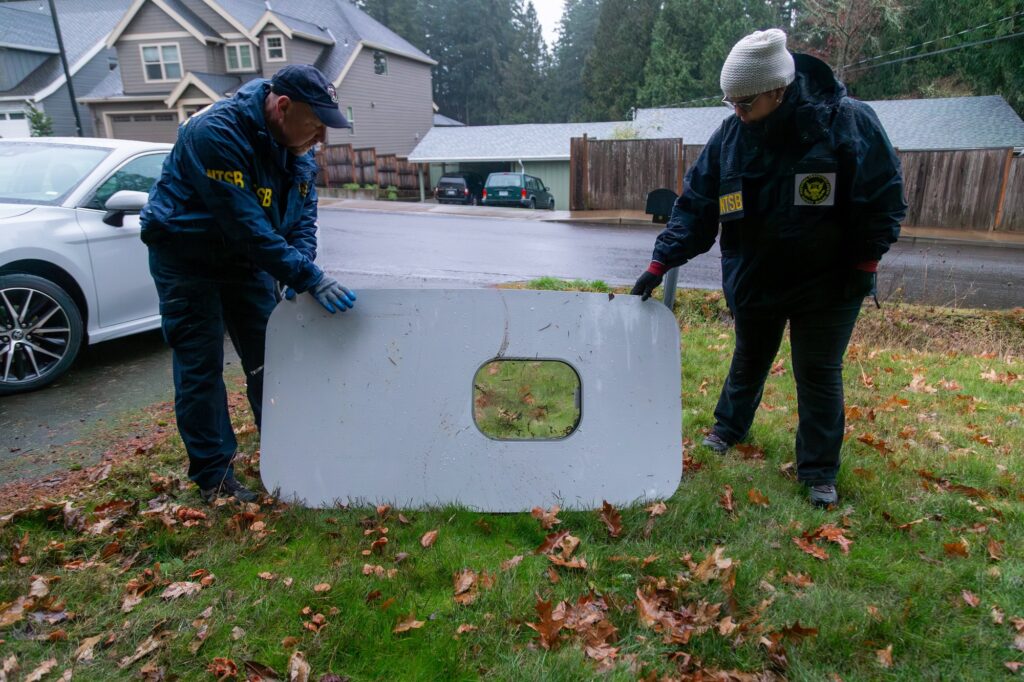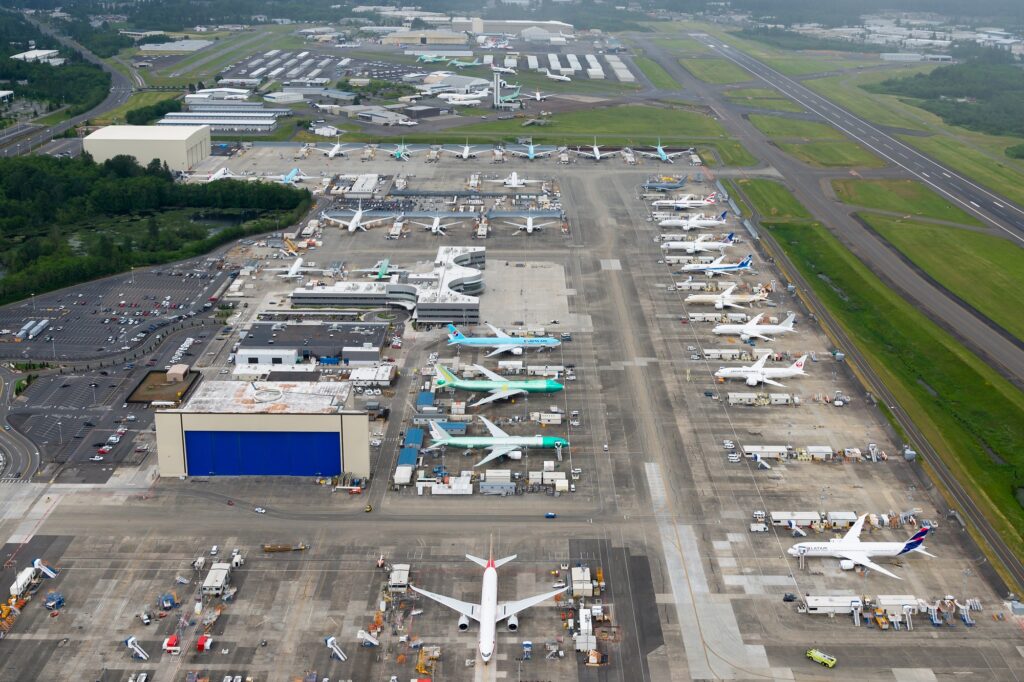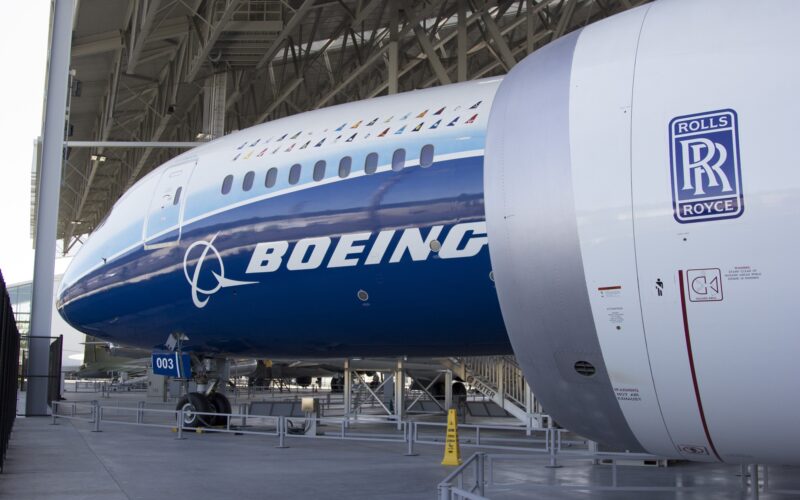Boeing has maintained its defense of the 787 Dreamliner after a bruising day in Washington DC where two Senate committees heard from key witnesses on the same day about the aircraft manufacturer’s safety culture at its factories.
At the Senate Permanent Subcommittee on Investigations hearing on April 17, 2024, the engineer whistleblower Sam Salehpour testified that Boeing is “putting out defective airplanes” and taking “shortcuts” to speed up production.
“I have serious concerns about the safety of the 787 and 777 aircraft and I’m willing to take on professional risk to talk about them,” Salehpour said in his opening statement.
Equally concerning the Salehpour said that when he raised concerns with Boeing he was “ignored” and told to not “create delays”.
‘I was told, frankly, to shut up’
“I was told, frankly, to shut up,” Salehpour told the committee hearing.
Salehpour has previously alleged that small gaps at the fuselage joins on 787 aircraft could “cause a catastrophic failure” due to excessive wear.
In 2020, Dreamliner deliveries were put on hold to fix issues with small holes and after almost two years, the Federal Aviation Administration (FAA) eventually approved a solution to the problem.
However, Salehpour claimed the “gaps in the 787 were not being properly measured,” and due to the mismeasurements, shims – pieces of material used to fill small gaps – were not always inserted.
“Installation of fasteners with gaps exceeding .005 inches without proper shimming (or in some cases, any shimming at all) puts excessive stress on these fasteners and can cause significant fatigue in important airplane components, especially in joint areas where large fuselage barrels are connected,” Salehpour testified at the hearing.
Salehpour also said in front of Senators that while he was working on the Boeing 777 in one instance, he saw workers “jumping on pieces of the airplane to get them to align”.
A second witness, Ed Pierson, who was a former Boeing manager, also spoke at the hearing on Capitol Hill.
Pierson described it as a “criminal cover-up” that the National Transportation Safety Board (NTSB) had not been provided with documents by Boeing relating to the removal of the door plug during assembly of the Alaska Airlines 737 MAX 9 that was later involved in the flight emergency on January 5, 2024.

“Records do exist documenting in detail the hectic work done on the Alaska Airlines airplane and Boeing’s corporate leaders know it too, because they fought to withhold these same damning records after the two Max crashes,” Pierson said.
Following the hearing the NTSB Chair Jeniffer Homendy, who is investigating the 787-9 incident, defended Boeing and contradicted Pierson’s evidence.
“I believe the whistleblower has the ship-side tracker, which we already have, [and] is not the documents we are looking for. We’re looking for other documents that don’t exist,” Homendy told Flight Global.
However, Pierson later told POLITICO following Homendy’s comments that he has more than just the tracking data documents.
After the conclusion of the hearing Boeing reaffirmed its view that the safety of the 787 and 777 has not been compromised during production.
“Boeing is fully confident in the 787 Dreamliner because of the comprehensive work done to ensure the quality and long-term safety of the aircraft. Claims about the structural integrity of the 787 are inaccurate,” Boeing said.
Information on 787 quality: https://t.co/5WEGFmxlHC pic.twitter.com/5m28wSSuzi
— Boeing Airplanes (@BoeingAirplanes) April 17, 2024
The planemaker added: “The issues raised have been subject to rigorous engineering examination under U.S. Federal Aviation Administration oversight. This analysis has validated that the aircraft will maintain its durability and service life over several decades, and these issues do not present any safety concerns.”
Boeing also said that it “encourages all employees to speak up when issues arise” and that “retaliation is strictly prohibited” at the company.
Second Senate hearing
The Senate Committee on Commerce, Science and Transportation also heard evidence on April 17, 2024, about the safety culture at Boeing.
The chair of the committee, Senator Maria Cantwell, welcomed the FAA’s Independent Expert Panel that in February 2024 published a report looking at Boeing’s safety culture, safety management systems (SMS) and Organization Designation Authorization (ODA).
As part of its investigation the expert panel looked at more than 4,000 pages of Boeing documents, conducted 250 interviews and held meetings with Boeing employees across six sites.
In its conclusions the panel said it observed a “disconnect” between the senior management at Boeing and the other staff members on “safety culture”.
Interviewees, including ODA Unit Members who are authorized by the FAA to carry out functions at an organization or company such as issuing certificates, questioned whether safety systems at Boeing enabled “open communication” and “non-retaliation”.

At the hearing Senator Tammy Duckworth, said the ODA “needs to be relooked at” and that “bad actors are removed from that process within Boeing,” according to the Seattle Times.
The Associated Press reported that panel member Javier de Luis, an aeronautics lecturer at MIT, told the committee that workers at Boeing felt pressured to process planes as fast as they can.
“There was a very real fear of payback and retribution if you held your ground,” de Luiz said.
Following the conclusion of the second hearing Boeing said it will “take the FAA review panel’s detailed assessment to heart and will act on their findings and feedback”.

